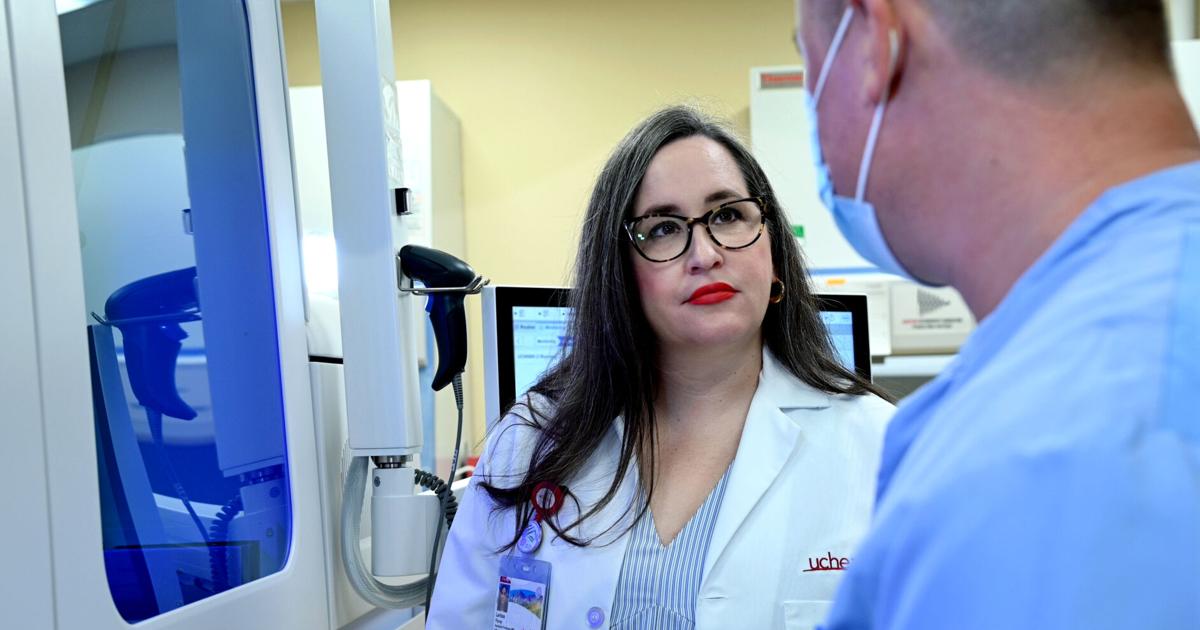Infection
Infectious disease docs: Respiratory illness season this year unlikely to see COVID-19 spikes of the past
COVID-19 cases are eking up in Colorado, but local infectious disease doctors aren’t worried — yet.
The reason?
This isn’t 2020.
While three years ago infectious disease experts were grappling to understand how the novel coronavirus was transmitted, today health officials have a number of tools in their arsenal: COVID-19 vaccines and boosters, prior infections that can ward off severe disease and therapeutic treatments.
“We certainly have come a long way,” said Dr. Heather Young, an infectious disease specialist at Denver Health. “The illnesses that our patients are seeing is less severe with all of the advances.”
As of Monday, 115 Coloradans were hospitalized with COVID-19, according to the Colorado Department of Public Health and Environment data. Just six weeks ago, there were 56 hospitalizations statewide.
“Cases of COVID-19 have been increasing since the end of June, with a larger increase late last month,” Annemarie Harper, a Colorado Department of Public Health and Environment spokesperson, said in an email to The Denver Gazette.
Harper added: “This could be due to a number of factors, including emerging variants, changes in behavior and activities such as return to school, waning immunity, or other seasonal factors.”
To put both of those numbers into perspective, at the pandemic’s peak 1,847 Coloradans were hospitalized the week of December 1, 2020.
The rise in Colorado cases has mirrored what has been happening across the U.S. as the nation closes in on the time of year the number of respiratory illnesses rise.
The week of Sept. 2, nearly 19,000 Americans were hospitalized with COVID-19 nationwide, up from roughly 6,400 the first week in July, according to the Centers for Disease Control and Prevention.
“There is more COVID in the community now than there was several months ago,” said Dr. Michael Roshon, an infectious disease specialist with CommonSpirit Health, formerly Centura Health.
“But we’re talking about overall very low numbers compared to when we were in the dark days of the pandemic.”
At the height of the pandemic, CommonSpirit Health had about 300 COVID-19 patients hospitalized.
That number is in the 20s now.
“I don’t think that we’re going to see the same levels that we saw the last few years with COVID,” Roshon said.
If CommonSpirit started see 100 hospitalizations a day, that would be a concern, Roshon said.
To date, there have been 15,340 deaths attributed to COVID-19 in Colorado and 1.7 million infections.
‘I’m optimistic’
The uptick in cases also follows what happened in the southern hemisphere, which includes most of South America, roughly half of Africa, Australia and New Zealand.
While the flu season is typically from October through May in the U.S. it hits the southern hemisphere earlier from March to September. Experts often look to the flu activity in the southern hemisphere for clues about what could happen in the U.S.
Cases of COVID-19 — which health experts say is here to stay as a seasonal respiratory illness like influenza — rose first and then flu infections.
“We’re starting to see that signal now with all of the case numbers going up,” said Dr. Larissa Pisney, medical director of Infection Prevention for UCHealth.
The flu virus constantly changes, so vaccines are updated each season.
With the flu vaccine in the southern hemisphere is reducing the risk of hospitalizations by 52%, local health officials said they were encouraged the U.S. could see a more “normal” season.
“I’m optimistic we’re going to prevent a lot of severe disease from it,” Young said.
And now with a vaccine for RSV, there is no talk of the confluence of respiratory illnesses officials had warned of in previous flu seasons. Historically RSV, like the flu, typically spreads in the fall and winter months.
Health officials described the triple threat of respiratory illnesses — COVID-19, flu and RSV, a respiratory disease that wreaked havoc among Colorado’s children last year — as a “tri-demic.”
COVID-19 measures — practicing hand hygiene, masking and social distancing — early in the pandemic had kept the flu and RSV at bay before returning with a vengeance.
“We have our fingers crossed that we won’t have the overlap and confluence,” Pisney said.
If the public continues to embrace vaccines.
Everyone six months and older should get vaccinated for the flu. Those 65 years of age and older, who have comorbidities or are immune suppressed such as cancer patients, should get vaccinated for COVID-19.
New RSV vaccines are available for adults 60 and older, infants and pregnant individuals.
“For us, we stay concerned about respiratory viruses,” said Roshon, with CommonSpirit Health.
For more information about COVID-19 testing and vaccines, visit covid19.colorado.gov.

